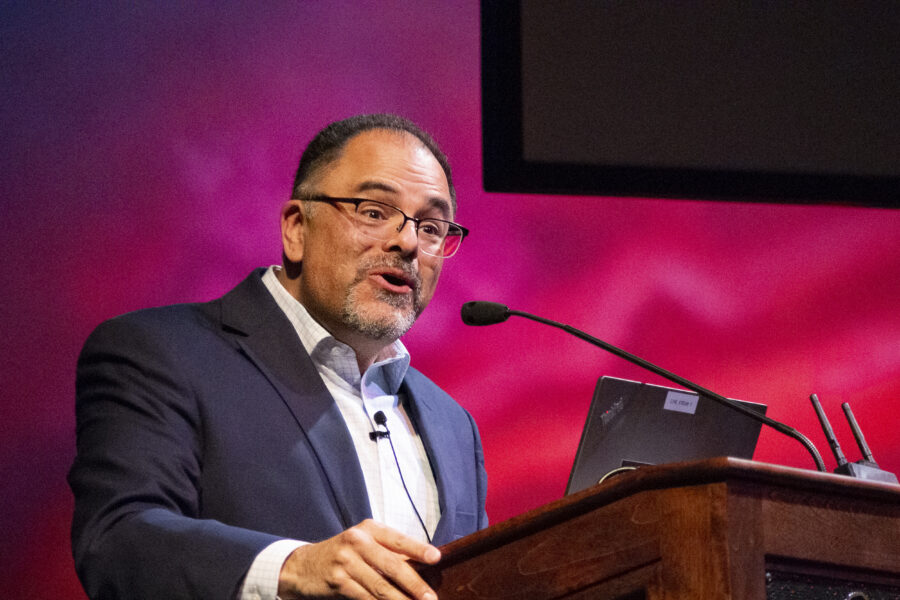
“I wish my Arab granny were here to see this,” said Dr. Edward Curtis, the new director of the Arabic Studies program at the IU Indianapolis School of Liberal Arts. It’s been a long journey from his rural Southern Illinois hometown. Curtis, the William M. and Gail M. Plater Chair of the Liberal Arts and Professor of World Languages and Cultures, is the descendant of the first generation of Arabic-speaking people to settle in the American Midwest. It’s that heritage and his grandmother’s ethnic pride that first sparked his interest in the study of Arab and Muslim history and cultures.
Curtis comes to his leadership role after more than three decades of research in and teaching about Muslim American and Arab American communities, mainly as a professor of religious studies first at Trinity University (Texas) and UNC Chapel Hill, and then from 2005 until recently at IUPUI. The author or editor of fourteen books, Curtis has won major grants and fellowships from Mellon, Fulbright, Carnegie, and the National Endowment for the Humanities. His Muslims in America: A Short History (Oxford University Press) was named one of the Best 100 Books of 2009 by Publishers Weekly and Muslims of the Heartland: How Syrian Immigrants Made a Home in the American Midwest (NYU Press) recently won the Evelyn Shakir book prize from the Arab American National Museum.
As IU Indy’s Plater Chair of the Liberal Arts, Curtis is also a community-engaged scholar who has worked with Hoosier Muslims to reduce Islamophobia and to celebrate both Muslim and Arab contributions to the state. As director of the Arab Indianapolis community history project, he oversaw a group of IU Indianapolis students whose research contributed to the writing of a book, creation of a heritage trail, dedication of a historical marker at Lucas Oil Stadium, and the training of central Indiana educators. He also wrote, produced, and hosted a PBS documentary, Arab Indianapolis: A Hidden History, which took home three Emmy awards. In addition, Curtis is a committed community archivist, facilitating the creation of the Indianapolis Imam Warith Deen Muhammad digital archive and the forthcoming archives of the Midwest Federation of Syrian-Lebanese American Clubs and the Syrian Ladies Aid Society of Michigan City, Indiana.
“One of the reasons I am so excited about my new role,” said the professor, “is because it will give me the chance to connect Arab and Muslim community partners more closely to the classroom and to IU Indy students.” According to Curtis, there has never been a more important time to support Arab and Muslim students. “It ranges from the emotional to the practical, including financial support through scholarships and opportunities for internships and community-engaged research,” he asserted.
“Above all, I hope to share my enthusiasm for Arab and Islamic studies,” Curtis concluded.
The Arabic Studies Program welcomes your financial support via the Arabic and Islamic Studies fund managed by the Indiana University Foundation.


